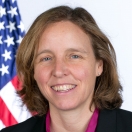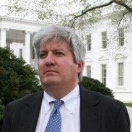
In this new era of distributed innovation, many Federal departments are working on the major challenge and opportunity to reinvent how they engage with the technology industry, so that many more technologies developed by commercial firms and start-ups are acquired and adopted by government. This is especially true in national security, which must adapt from a Cold War-era posture of having a near-monopoly on funding advanced technology to a world in which the commercial technology market is now many times larger and making major innovations in commercial space, robotics, data science, and many other areas of relevance to national security.
We applaud Secretary of Defense Ash Carter for last week announcing an expansion of the Pentagon’s Silicon Valley Office, Defense Innovation Unit Experimental (DIUx). In a speech in the heart of Silicon Valley, Secretary Carter vowed to substantially increase the flow of research and development (R&D) dollars to start-up firms with technology relevant to defense systems. He is doing this by making use of special acquisition authorities that allow the Department of Defense (DOD), the Federal government’s largest department, to nimbly contract with small start-ups through R&D awards, prize competitions, incubator-style investments, and many other practices highlighted by the Administration’s Strategy for American Innovation. Over time, more of the technology developed by these start-ups could be integrated into military systems, including, potentially, the kinds of major platforms now manufactured by traditional defense and aerospace contractors. DIUx will also help recruit more Americans from the tech sector into government, so that more of our best and brightest innovators have a chance to to join with talented colleagues in government to serve a tour of duty in government collaborating to solve our toughest national-security challenges.
To run this new venture, Secretary Carter announced a “partnership-style” leadership team. The team will include Christopher Kirchhoff, a DOD employee currently detailed to the National Security Council (NSC). Chris has been serving as NSC Director for Strategic Planning, and he will be leaving the NSC to return to DOD. Chris, along with others from NSC and from the White House Office of Science and Technology Policy (OSTP), recently completed a major internal review on emerging technology and national security that is changing how national and homeland security departments protect the American people. One of the findings of this report was that the Federal government needs to modify its core operations in order to exploit current technology tools, innovation methods, and communities of practice to better leverage emerging technology. The expansion of DIUx announced by Secretary Carter will help do just this. It is an important step towards helping the Pentagon access today’s innovation economy, and a notable addition to efforts by Federal agencies to harness the power of innovation at start-ups and better engage with entrepreneurs across the nation.
Megan Smith is the U.S. Chief Technology Officer.
Tom Kalil is Deputy Director for Technology and Innovation at the White House Office of Science and Technology Policy.
DJ Patil is Deputy Chief Technology Officer for Data Policy and Chief Data Scientist at the White House Office of Science and Technology Policy.




